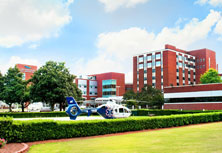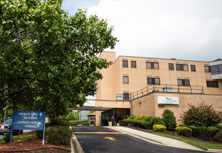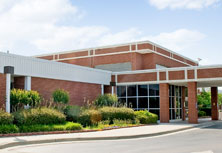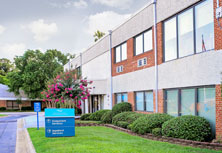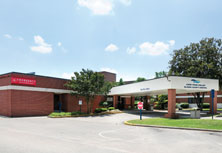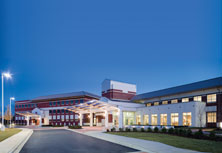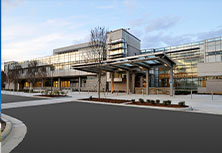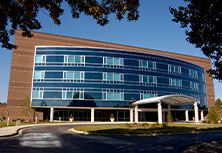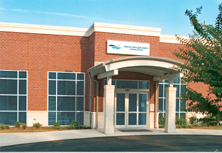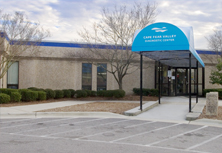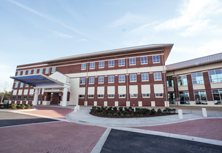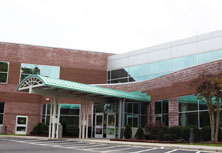Obstetrics and Gynecology Residency Program
Educational Resources for Obstetrics and Gynecology
The OB/GYN Residency Program will supply the residents with educational resources to aid in the resident's learning environment. Residents will have access to basic texts and web-based exercises; current peer-reviewed literature that assists with evidence-based practice; knowledge and skills acquisition through didactic lectures, simulation training, and conferences; supervised rotations involving educationally-sound clinical and cognitive experiences in the wards, clinics, and the operating rooms; and opportunity for basic, translational, clinical, educational, or other research. In addition, the following resources will be made available:
- Patient Population: Cape Fear Valley Medical Center patient population is economically and educationally diverse with all ethnic groups represented. The referral base serves as a source of complex patients for high risk obstetrics, gynecologic oncology and complicated gynecologic surgery.
- ACOG Junior Fellow Membership: All residents are encouraged to apply for the ACOG Junior Fellow Membership which is accomplished during orientation. Applications are also on line at the ACOG website. Benefits include access to Obstetrics and Gynecology journals as well as other ACOG publications and educational resources.
- CUSOM Medical Library offers 24/7 access to over 3,800 full-text electronic journals, thousands of books, and all the major medical information databases. In the quest for evidence-Based medical practice, journal articles are frequented circulated and discussed. The medical library also has a Patient Informatics Consult Service (PICS) program to provide patients and their families with health information. Because the practice of evidenced-based medicine is of the highest priority, through synchronous services (Library Information Desk, SearchDoc, the Librarian On-Call, and Learning Site), staff expertise is available electronically 24/7.
- Skills acquisitions outside the operating room and the bedside are fundamental to the educational mission. The Experiential Leaning and Assessment (CELA) offer opportunities for skills acquisition using simulation with standardized patients and state-of-the-art facilities. Hands-on skills sessions for suturing, knot-tying, and other skills are offered in laboratory and classroom settings. Learning activities in CELA are scheduled regularly and the residents also have 24/7 access for skills practice.
- Evolving current information from the peer-reviewed OB/GYN literature and information derived from presentations at national meetings are shared and discussed regularly at conferences. Articles are provided via electronic links to the CUSOM Medical Library and as copies for journal club and other activities.
- The basic and clinical sciences fundamental to OB/GYN are addressed through the weekly resident teaching conferences, grand rounds, clinical and education conferences, morbidity and mortality (M&M) conferences, and attending walk rounds, as well as skills labs, simulation center exercises, and the twice-monthly research conference.
- An audience-response system has been purchased to use at the weekly teaching conferences because of research that suggests that interaction enhances learning.
- The Graduate Medical Education office provides additional faculty development activities for residents and faculty concerning duty hours and fatigue.
- OB/GYN rotations are crafted for each year and residents are given graduated responsibilities with supervision as they progress. Competency-based milestones for every rotation for each of the four-years of training are found on the CFVMC website.
- All residents are advised to create and maintain (i.e., keep current) a portfolio--electronic and/or paper--wherein they store their CV, evidence of teaching and research activities, certifications such as ALS, BLS, etc., and other documentation of professional and scholarly activities.
- Reflection serves as a key to learning. Regular reflection on new knowledge and acquired skills is encouraged and expected.
- Every six months each resident meets with a program director, associate program director, clerkship director, or a designated OB/GYN physician who is part of the education office in order to participate in a self-assessment as well as receive feedback on the progress made in clinical skills, medical knowledge, and the other competencies that are measured against level-appropriate milestones.
- Operative Experience: The patient population provides a substantial diverse and appropriate gynecological experience. The quality of the surgical experience is emphasized with first mastering the skill of being surgical assistant to master skills, then progresses to primary performance of uncomplicated minor surgeries. A system of graded responsibility then progresses from simple to more complex operations. All cases are supervised by qualified staff.
- Out-Patient Care: The ambulatory care clinic services are provided by residents under the staff supervision. Among these services are gynecologic, prenatal and postpartum care, evaluation and management of first trimester pregnancy problems with ultrasound examinations, primary and preventive care, urogynecologic evaluation, breast evaluation, reproductive endocrinology/infertility evaluation and treatment, genetic counseling, colposcopy, and minor gynecological procedures.
- Labor and Delivery: Both routine and high-risk obstetric patients are managed by residents under staff supervision. Patients are evaluated in the outpatient setting with fetal testing, limited and targeted ultrasounds, Doppler velocimetry, and genetic amniocentesis. Residents gain experience through management of spontaneous vaginal delivery, operative vaginal deliveries (forceps, vacuum), multifetal deliveries, and vaginal birth after cesarean delivery, and cesarean delivery. Critically ill patients are followed on labor and delivery on the Surgical Intensive Care Unit, as appropriate. While rotating in labor and delivery, experience is gained in the principles of obstetrical anesthesia. All residents maintain certification in neonatal resuscitation. Principles of neonatal resuscitation and management of low frequency high risk obstetric clinical scenarios are taught through simulation exercises on labor and delivery whenever possible.
